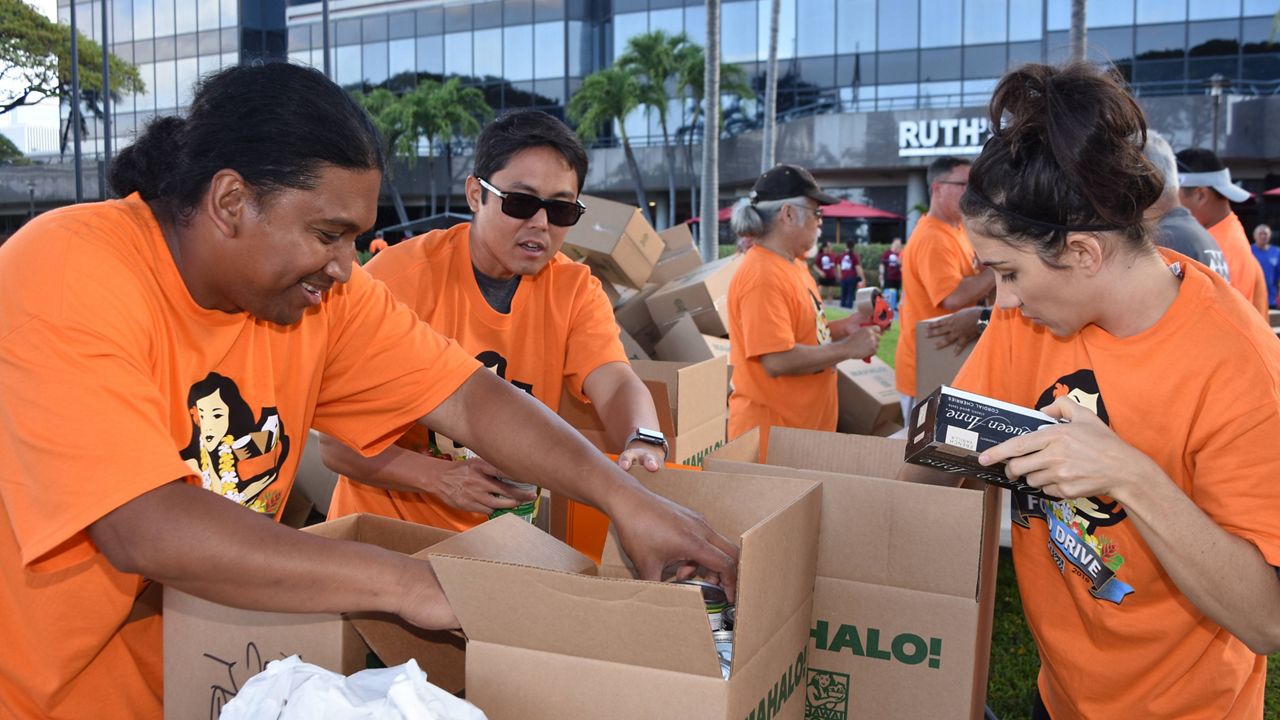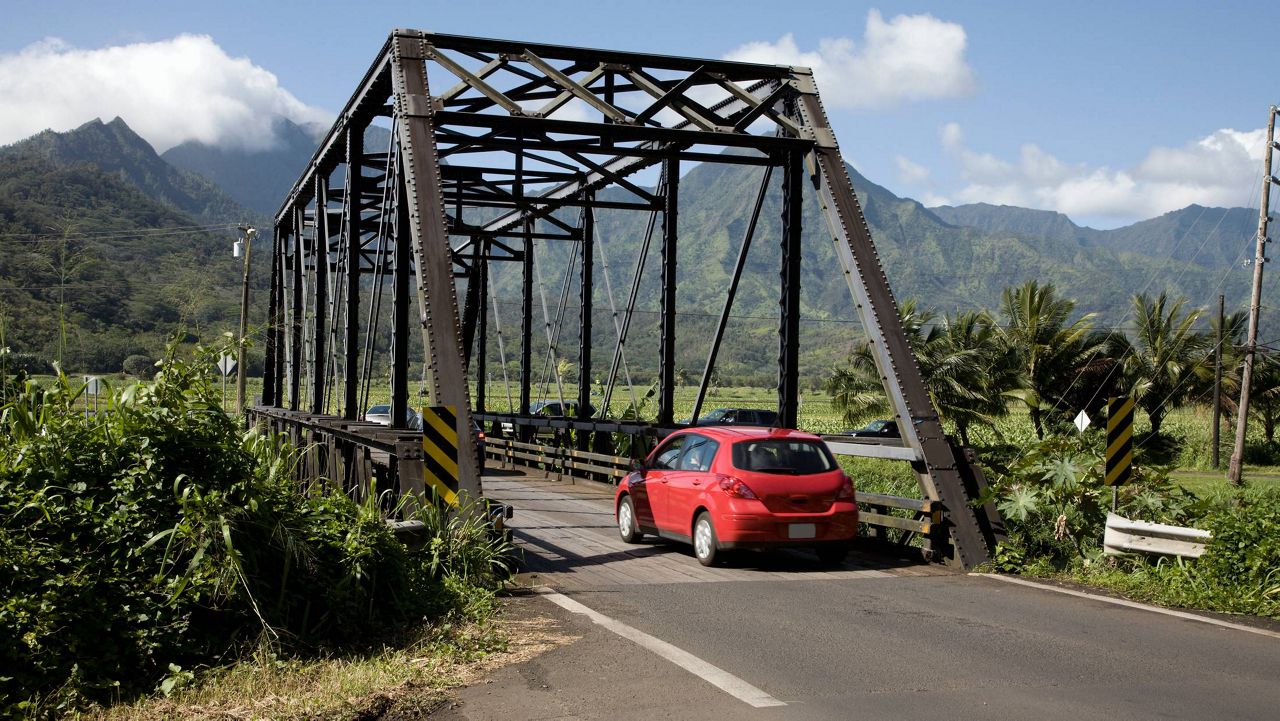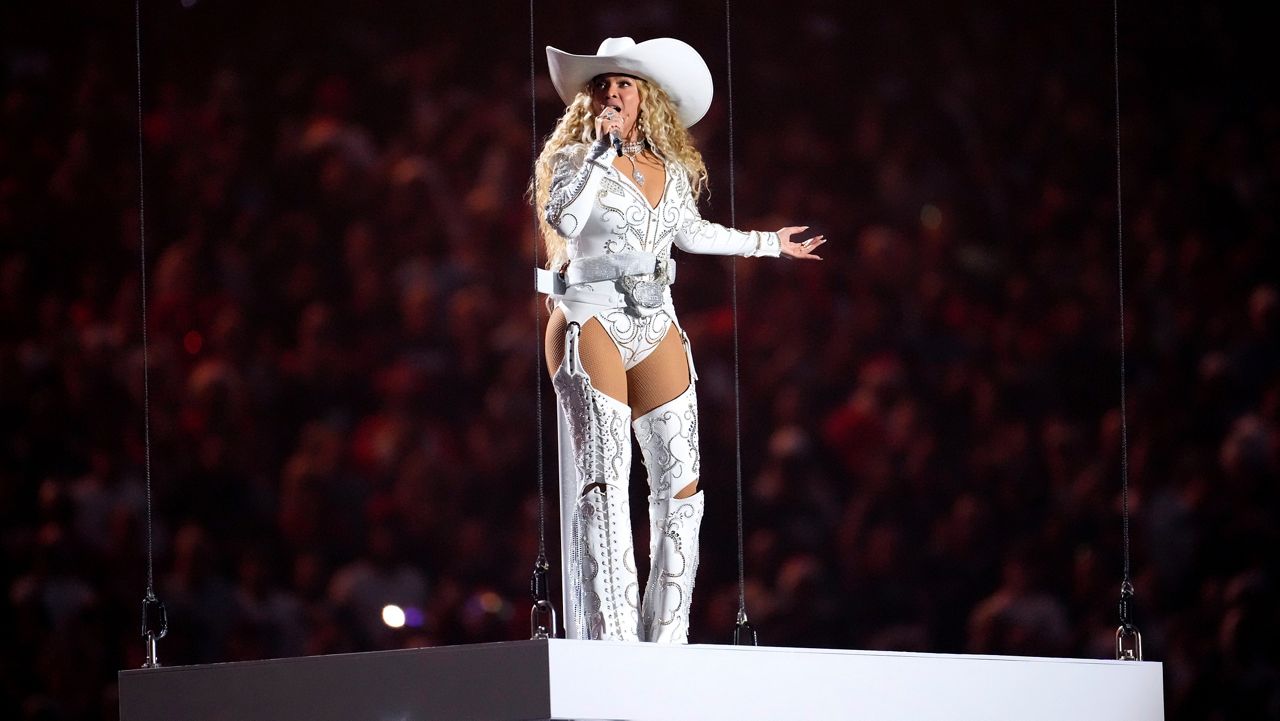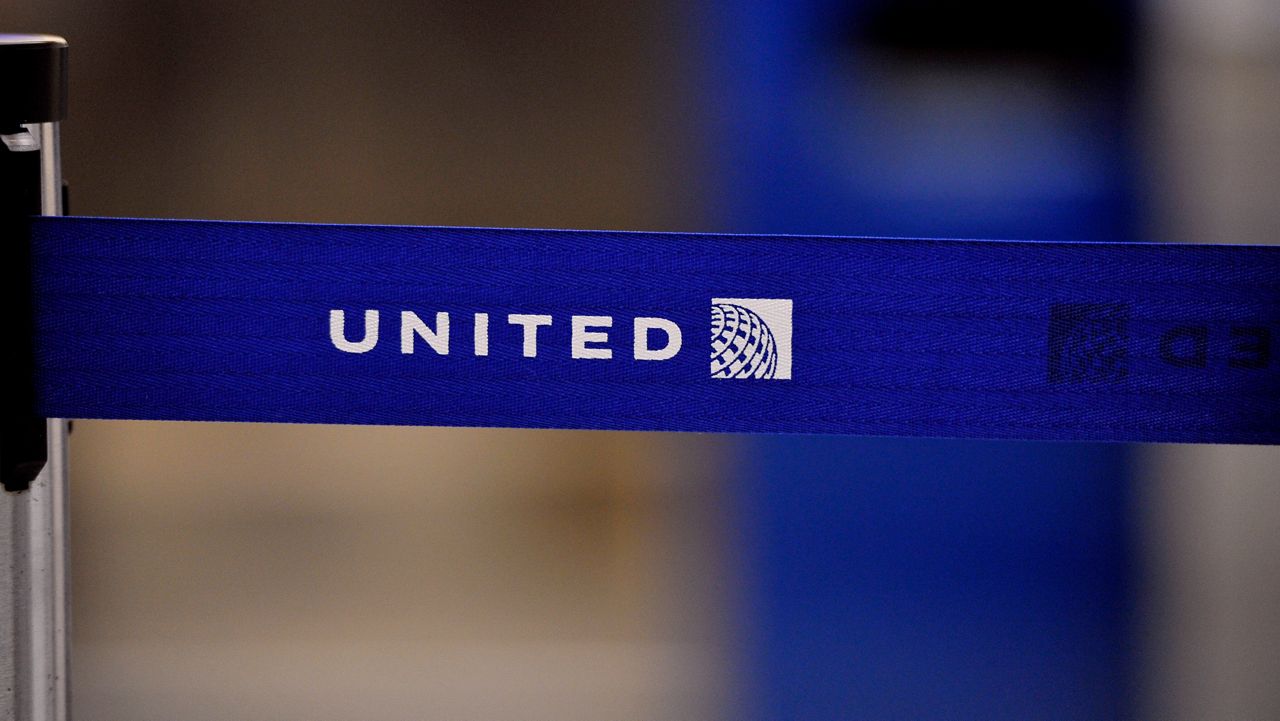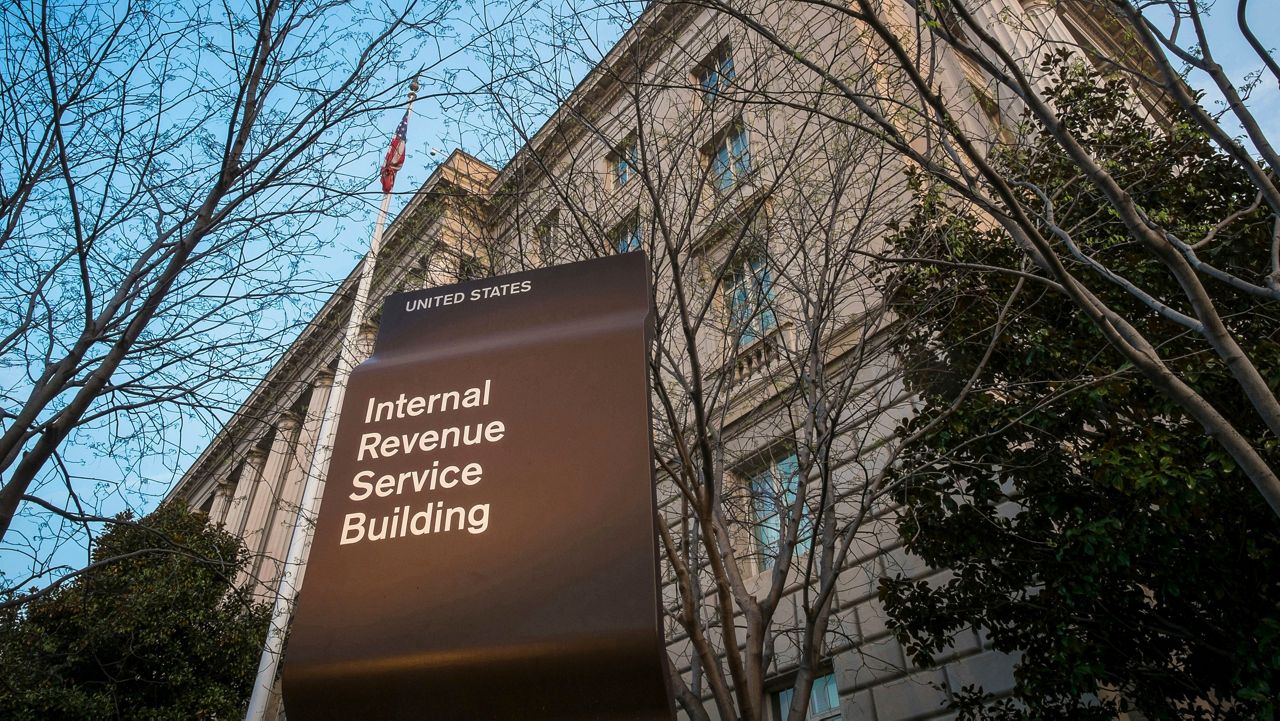Food banks on Oahu, Maui, Kauai and Hawaii Island are holding food drives this weekend as the need for meals increases.
"Over the past two years, hunger in our communities was at its highest level in almost a century. At Hawaii Foodbank, we saw COVID-19 exacerbate existing economic hardship for many families already struggling with hunger and present new challenges for others who found themselves struggling to put food on the table for the first time," Laura Kay Rand, Hawaii Foodbank VP and chief impact officer, told Spectrum News via email.
"As we begin to emerge from this unprecedented time, we continue to serve 50% more people than we did prior to the pandemic. The challenges brought on by the COVID-19 pandemic are now compounded by inflation, rising prices of groceries, fuel and other basic household necessities. One in six Hawaii residents struggle with hunger, including one in four keiki — Hawaii holds the second highest rate of child food insecurity in the nation."
On Maui, the problem is especially dire. The Maui Food Bank has been serving as many as 13,000 people on Maui, Molokai and Lanai a month, according to Richard Yust, the executive director of the Maui Food Bank, who spoke with Spectrum News.
“The need is great, and the food supply, unfortunately, is lower than we’ve seen in the past,” said Yust.
He said the Maui Food Bank has seen an increase in demand for food as a result of the nationwide inflation, but the problem is exacerbated on Maui.
According to Feeding America, the nationwide average cost for a meal is $3.25. However, for the state of Hawaii it’s $3.79 and for the island of Maui it’s $4.40.
While inflation is making it harder for families to afford food, it’s also caused a decrease in retail and wholesale food donations to the Maui Food Bank as it costs the stores more to buy food.
“They’re not buying as much so we’re seeing our retail and wholesale donations significantly declining,” said Yust.
Also, supply chain issues caused by the pandemic are leading to a decrease in food, according to Yust. And while the pandemic has been going on since 2020, he said business has improved, so there are more people buying products. It's a supply-and-demand issue.
“The stores are buying more so the manufacturers have less to supply,” said Yust. “We still have an issue with trying to actually find the product.”
Another factor is the high cost of living. Wages for many employment opportunities are not high enough — even when people on Maui work multiples jobs.
“If you’ve got a typical hotel job, you’re making $14 an hour … it’s just not enough to get by, especially with the high cost of utilities, gas, insurance and everything else,” said Yust.
He also said they've noticed that monthly SNAP benefits are running out much quicker for many families. In the past, SNAP benefits would last about three weeks before a family needed food assistance, but now Maui Food Bank often sees them coming in for help after two weeks.
"Food prices have increased significantly since the beginning of the pandemic and continue to accelerate with growing inflation," Rand said, noting that according to the Consumer Price Index, grocery prices have increased 12% in just the past year, with foods such as meats, fish, poultry and eggs seeing an increase of 29%.
Across the state, all the food banks are hosting donation drives. Hawaii Foodbank on Oahu and Kauai along with Maui Food Bank, Hawaii’s Food Basket on Hawaii Island are partner distribution organizations, which are linked through Feeding America, a nonprofit that is a nationwide network of food banks.
“With one in six Hawaii residents struggling with hunger, we need to act now so that no one in our ohana has to choose between food and shelter, utilities, transportation or education,” said Hawaii Foodbank’s President and CEO Amy Marvin in a press release.
According to Rand, the most-needed items are canned proteins (tuna, chicken and other lean meats), canned meals (soup, stew, chili and pasta), canned fruits (along with fruits in a jar or cup), canned vegetables and rice in 2- to 10-pound bags.
Along with food donations, Yust encouraged people to contribute money, as the Maui Food Bank is purchasing more items because there are less retail and wholesale donations.
Rand explains that through the partnership with Feeding America, the organizations are able to stretch each dollar donated. "Every dollar donated allows us to provide food for more than two meals — providing us with the opportunity to create a greater impact for the people in the communities that we serve."
Hawaii Foodbank also partners with the Hawaii Farm Bureau, spending $200,000 a month purchasing fresh produce direct from local farmers and growers. She notes that it's a way to support the local economy while providing nutritious food to families in need.
"Many people don’t know that between 25% and 30% of the food we distribute is fresh produce, which we source through local farmers, food rescue from local retailers and wholesalers, and through partnerships on the continent," she said. "We’re looking to ensure that all the food we provide has the nourishment our community needs to grow and thrive."
"Last year Hawaii Foodbank distributed 25 million pounds of food, including nearly 5.3 million pounds of fresh produce."
On Oahu, donations can be made Saturday between 8 a.m. to 2 p.m. at the Town Center of Mililani at 95-1249 Meheula Pkwy., at the Waiokeola Congregational Church at 4705 Kilauea Ave., at the Waterfront Plaza at 500 Ala Moana Blvd., or at the Windward City Shopping Center at 45-480 Kaneohe Bay Dr.
On Maui, donations can be dropped off Saturday between 8 a.m. to 2 p.m. at the Maui Food Bank’s Warehouse at 760 Kolu St. in Wailuku.
On Kauai, donations are being accepted on Saturday from 10 a.m. to 2 p.m. at the Big Save Market – ʻEleʻele at 4469 Waialo Rd., at the Big Save Market – Kōloa at 5516 Kōloa Rd., at the Big Save Market – Waimea at 9861 Waimea Rd., at the Ching Young Village Shopping Center at 5-5190 Kuhio Hwy., at the Kukui Grove Center at 3-2600 Kaumualiʻi Hwy., at the Safeway – Hokulei Village at 4454 Nuhou St., Suite #301 and at the Safeway – Kapaʻa at 4-831 Kuhio Hwy.
On Hawaii Island, donations will be accepted on Friday and Monday at the Food Basket’s Hilo Warehouse between 8 a.m. to 3:30 p.m. and at the Kona Warehouse between 7 a.m. to 3 p.m.
For those who can't make in person, there is a Virtual Food Drive that allows people to select which county they'd like their donation to go to.
Michelle Broder Van Dyke covers the Hawaiian Islands for Spectrum News Hawaii.




